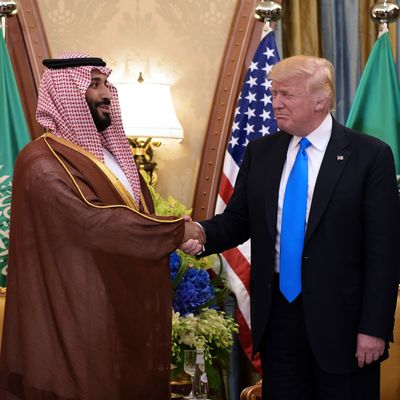
Ben: The U.S. maintains that the weekend attacks on a major Saudi oil facility — which Houthi rebels in Yemen have said they are responsible for — were launched from Iran. President Trump has not said what the American response will be but has said the U.S. is “locked and loaded.” First of all, does it make sense to you that Iran would do something that would so blatantly invite an aggressive military response?
Heather: One possibility is that hard-liners in Iran see momentum barreling toward high-level talks at the U.N. this month, particularly after John Bolton’s departure, and made this happen to try to stop it.
Ben: So they’d presumably prefer war with Saudi Arabia and possibly the U.S. to an Iran deal repeat?
Heather: Definitely a faction in Iran would, because it gives security forces more power and resources. Another possibility, though, is that this is nongovernment forces allied with Iran. The Houthis have been trying to target Saudi oil installations for years.They have their own strategic reasons for wanting to do so.
Ben: Which are what?
Heather: Driving the Saudis to end their interventions in Yemen propping up a government the Houthis oppose. That conflict remains intense. A Saudi bombing killed dozens of people a couple of weeks ago.
Ben: Over the past year-plus of U.S.-Iran tensions, brought on mostly by the U.S. dropping out of the Iran deal and reimposing sanctions, President Trump has shown some restraint compared with some of the more hawkish voices in the White House. He called off a retaliatory strike at the last minute several months ago and has expressed interest in sitting down with Iran’s president, Hassan Rouhani, one-on-one. Do you see his latest martial threat as another gambit to get Iran to the table, or do you think there’s a real chance the U.S. will launch some sort of attack on Iran?
Heather: I do, given how close we came to launching an attack back in June. It wouldn’t surprise me at all to see Trump attempt a bomb-and-talk strategy, but that could backfire.The Europeans, others in the region, and perhaps even the Saudis perceive that the possibility of escalation is real, which is why all are urging caution and slow analysis. It makes Pompeo’s strident comments this weekend even more striking.
Ben: If the U.S. did decide to respond militarily, what do you think that might look like? Striking a weapons facility? Presumably we’re not talking about bombing areas that include lots of civilians.
Heather: We could say we had identified the site from which the attack came and are taking it out with missiles/drones. A second possibility would be saying some militia group was responsible and going after its headquarters. Third, though, the U.S. has lots of cyber and intel tools to retaliate with as well, which are less visible to us but do at least as much to diminish Iranian capabilities and send a message.
Ben: That would be a throwback to the Obama era.
Heather: I’d say rather that it hasn’t changed. What has changed is how much the chief executive builds his political planning around appearing tough and/or statesmanlike on Twitter.
Ben: How do you mean?
Heather: Trump deploys Twitter threats against foreign leaders to look tough to his base, and Twitter photo ops to look statesmanlike to his base. Other presidents tended to believe they actually needed to defeat adversaries to be seen as tough, and actually reach substantive agreements to look statesmanlike.
Ben: John Bolton, whom Trump unceremoniously dumped as his national-security adviser last week, was known for his foreign-policy pugilism. Do you think Bolton’s exit changes the White House’s thinking on how to respond to Iran at all? As you noted, Pompeo isn’t exactly a dove himself.
Heather: Bolton seems to have been pretty thoroughly sidelined before he was dumped — the consequence of which is that there’s no one managing a strategy for how to deploy toughness to get to talks. And there are likely no comprehensive preparations for talks. I would expect what happens next to be less coherent than the efforts toward a North Korea deal. Which is saying something.
Ben: So our best hope is mere disorganization, rather than disorganization paired with escalation?
Heather: The trouble is that disorganization and lack of clarity and communication are what makes unintended escalation more likely.





























